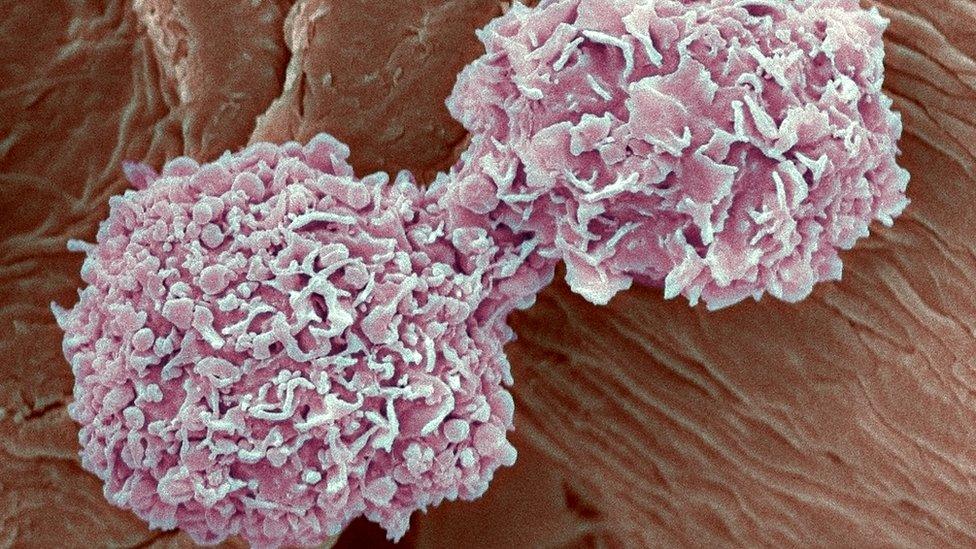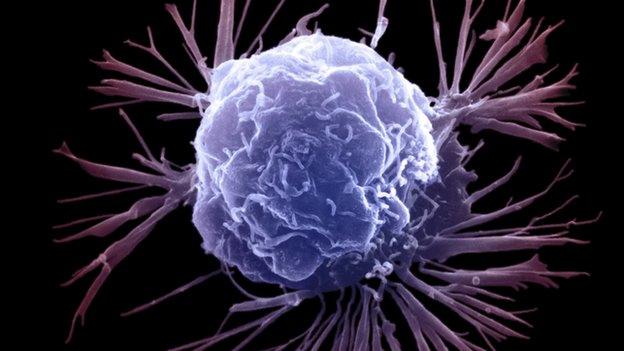Cancer Drugs Fund plans 'to speed up access' to drugs
- Published

Patients could get innovative cancer drugs more quickly under plans to overhaul England's controversial Cancer Drugs Fund.
It currently pays for drugs the NHS has decided are unaffordable, but the health service says the fund is "no longer sustainable".
A consultation document, external proposes giving patients drugs "with genuine promise" while they are being assessed.
The NHS would then decide whether they should be funded.
Simon Stevens, chief executive of NHS England, said: "Over the next five years we're likely to see many new cancer drugs coming on to the worldwide market, some of which will be major therapeutic breakthroughs and some of which will turn out to offer little extra patient benefit but at enormous cost.
"The new Cancer Drugs Fund offers a route for sorting out the wheat from the chaff, so that patients in England get faster access to the genuinely most promising new treatments."
Confusion
At present, the Cancer Drugs Fund can choose to pay for innovative drugs which the health watchdog, the National Institute for Health and Care Excellence (NICE), has rejected for widespread use on the NHS.
But under the plans NICE would make all the decisions.
When a drug comes on to the market, NICE will give it the go-ahead for the whole NHS, reject it entirely or put it on the CDF while more data is collected.
A drug can be on the fund for up to two years before NICE must make a final decision to accept or reject the therapy.
Spiralling costs
The fund, which was established in 2011 and covers England, has seen its costs rise to £340m in 2015-16 from an initial budget of £200m a year.
Prof Paul Workman, chief executive of The Institute of Cancer Research, said it made sense for the Cancer Drugs Fund to pay for new drugs only after a provisional green light from NICE.
This would avoid duplicating the process for deciding whether drugs should be made available on the NHS, he said.
He added: "There are also promising signs of a desire to address the bottleneck we have in cancer drugs being approved for use on the NHS.
"The proposals could speed up the drug evaluation system - which is good news for everyone - and would increase the number of drugs which would be available for consideration under end-of-life criteria."
He also said he welcomed the move to allow new patients access to promising treatments while further evidence on them was collected.
Patient needs
In the past decade only one new drug has been approved by NICE for the treatment of ovarian cancer.
Annwen Jones, chief executive of Target Ovarian Cancer, said: "Any new appraisal system must maintain access to those drugs already available and find ways to improve access to the few new drugs that are being developed for ovarian cancer."
She said it was important that the new CDF represented and addressed patient needs.
- Published9 December 2014
- Published16 November 2015

- Published29 October 2014
